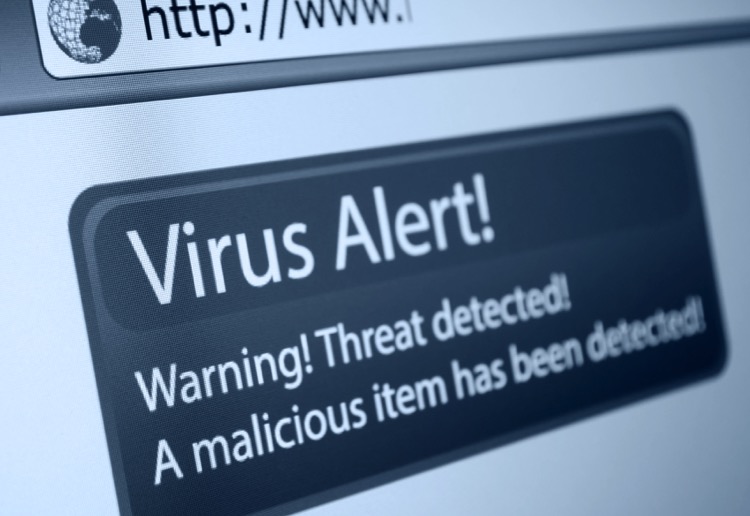Getting a computer virus is just no fun. Not only does it mess up the operation of your computer, but it puts your private information at serious risk. Nobody wants that!
But how do you go about avoiding such a predicament? Well, here are four common virus traps that you should look out for in your best efforts to avoid a virus!
Pop up ads
We all hate pop-up ads. Pop-up ads, in addition to being generally annoying, can pose a threat to your computer if you click on the wrong thing. Many of these pop-ups lead you to scam websites, which contain malicious links and may even trick you into downloading a virus.
For example, something that has come up a lot recently is the faux-antivirus pop-up. This pop-up leads you to a page that imitates the appearance of antivirus software, warning you that you have a virus on your computer. It then tells you to “Click Here” to download antivirus software. Whatever you do, DO NOT CLICK on this link. In fact, don’t click on any links inside a pop-up ad. More often than not, this will download a virus onto your computer.
Scam websites
When surfing the web, there’s a whole host of websites out there ready to trick you. These scam websites fool you under the pretence of being legitimate.
A good example is movie streaming. When you’re looking to stream a movie online or download it onto your computer, the process of finding a legitimate link for it can get risky. Jumping onto a scam website that claims to have “fast, free movie downloading” can stick you with a malicious computer virus.
Spam email
Spam email is tricky to deal with. In worst case scenarios, spam emails will try to scam you into either giving up your private details and passwords, or downloading viruses onto your computer. That’s why it’s always important to stay vigilant when checking your emails. If you have even the slightest suspicion that an email might be a scam, do not click on any of the links within the body of the email, and especially not any attachments! Malicious links are a surefire way of catching a virus.
Messages/Emails from trusted friends
Most of the time, you don’t expect a good friend to wish a computer virus on you. And (hopefully) most of the time, they don’t. But if they themselves have had the misfortune to be hit with a virus, there are ways for the virus to exploit your relationship to try and latch itself onto you.
One such way is by hacking into your friend’s email or social media accounts and sending you deceitful messages with malicious links inside. It could be a harmless-looking, “Check out this cool photo I took of you!”, with a mysteriously-named file attached to the email. Getting an email like this from a good friend, why wouldn’t you want to open up the attachment? Well, the answer to that is that there could be a virus going around, and your friend has got the bug!
If you get an email or message from a friend that suspiciously doesn’t sound like their usual talking manner, or includes a weirdly-named attachment without a preview, do not click on any links or download any attachments. Ask your friend about it first, check to see if the email or message was straight from them, and shoot them a quick warning that they may have caught a computer virus.
There are so many new, innovative ways for scammers to trick you. Next time you find yourself surfing the web or checking your emails, make sure that you exercise a little extra caution before clicking on anything.
Have you ever been scammed online? How did it end up for you? Share with us below.
Image source Shutterstock.




















-

-
-
meedee said
- 28 Jan 2022
-

-
-
ella12 said
- 14 Feb 2017
-

-
-
mom81879 said
- 09 Jan 2017
-

-
-
mom117465 said
- 07 Jan 2017
-

-
-
curlytops said
- 04 Dec 2016
-

-
-
zenbart said
- 27 Nov 2016
-

-
-
mom101628 said
- 18 Nov 2016
-

-
-
mom134803 said
- 18 Nov 2016

-

-
-
rovermum said
- 17 Nov 2016
-

-
-
mom70876 said
- 16 Nov 2016
-

-
-
BellaB said
- 16 Nov 2016
-

-
-
mom111059 said
- 31 Oct 2016
-

-
-
mom19782016 said
- 26 Oct 2016
-

-
-
mom90758 said
- 24 Oct 2016
-

-
-
mom160421 said
- 23 Oct 2016
-

-
-
mom64356 said
- 23 Oct 2016
-

-
-
mom112217 said
- 23 Oct 2016
-

-
-
mom93821 said
- 23 Oct 2016
Post a comment8:58 am
4:34 pm
8:28 pm
12:23 am
8:46 pm
7:37 pm
10:09 pm
2:02 am
11:50 am
11:48 pm
7:18 pm
10:16 am
6:26 am
2:27 pm
8:43 pm
7:23 pm
6:03 pm
-

-
-
mom93821 replied
- 24 Oct 2016 , 6:55 am
Reply2:48 pm
To post a review/comment please join us or login so we can allocate your points.